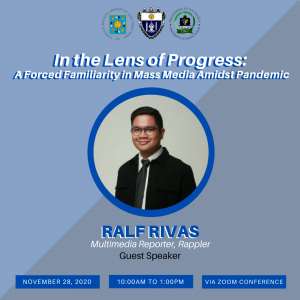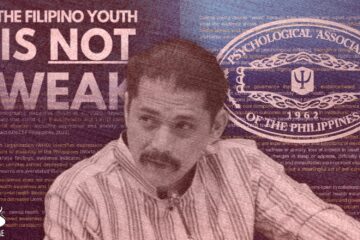
DISINFORMATION WORSENED amid pandemic and media is not to blame but the ‘weak institutions,’ a journalist said in a webinar series spearheaded by third-year UST sociology students on Nov. 28.
Ralf Rivas, a Rappler multimedia reporter, centered on the disinformation landscape during the pandemic and how it affects journalists in a webinar titled “In the Lens of Progress: A Forced Familiarity in Mass Media Amidst Pandemic.”
“Badly crafted disinformation materials are mixed with the confusing ones, the partially true ones, and actually the legitimate ones,” said Rivas.
He also said that “disinformation, weak institutions, profit-driven interest, competition, strongman leadership, climate of fear, and the virus” make up the country’s “chaotic disinformation ecosystem” equation.
“Grabe talaga yung mga makapangyarihan sa lipunan, they weaponized this pandemic,” said Rivas.
Rivas has raised the struggles of journalists amid pandemic as they experience difficulties in accessing old sources and gets ignored a lot by gov’t officials.
“We just have to be brave and believe in what’s enshrined in the Constitution — free speech, press freedom,” he said amid the persistent ‘threats’ and ‘microaggressions’ thrown against journalists.
Despite these challenges, Rivas sees journalism as a “fulfilling experience.”
“Sociologists can also view the experience [of journalism] as a first-row seat in looking at capitalism,” he said.
The webinar was one of the series of online seminars initiated by the third-year UST AB Sociology to expose students to various research technologies and discuss social issues as part of their department’s vision and course requirements. F



